DBS Bank Invests in Smallholder Farmers and Women’s Leadership for Sustainable Agriculture
JAKARTA, RAKYAT NEWS – DBS Bank Indonesia has committed to allocating more than IDR 100 billion to enhance the quality of life and well-being of vulnerable communities in Indonesia, including women, smallholder farmers, youth, and people with disabilities. This initiative is part of the bank’s broader commitment to social responsibility, aiming to create a meaningful impact on Indonesia’s future generations.
The bank’s President Director, Lim Chu Chong, explained that this funding is part of DBS Group’s pledge to invest SGD 1 billion over the next ten years. This initiative is focused on sustainability and aims to benefit not only the bank’s clients but also the broader business, environmental, and community sectors.
“The initiative supports sustainability goals and creates a lasting impact for a better future for Indonesia’s younger generation,” said Lim Chu Chong in an official statement on January 23, 2025.
He outlined the bank’s strategic partnerships in 2025, which are designed to tackle challenges faced by vulnerable populations across the country.
One of the key programs is FEAST (Flores Empowerment for Agricultural Sustainability and Transformation), a collaboration with the Humanis Foundation and Social Innovation. Running from 2025 to 2028, the program aims to improve the capacity of smallholder farmers to adopt sustainable agricultural practices and enhance the nutritional status of their families through women’s leadership in food diversification and household food security.
Around 28,000 smallholder farmers, including 50% women, and their families will benefit from the program, which also aims to strengthen food security and improve access to nutritious food. This project reflects DBS Group’s ongoing commitment to addressing inequality and supporting local communities.
According to data from the Indonesian Ministry of Social Affairs, Indonesia ranks low in inclusivity compared to other ASEAN countries, including the Philippines, Vietnam, Singapore, and Thailand. Indonesia holds the 125th position globally on the Inclusivity Index, indicating significant gaps in access to education, economic opportunities, and financial services.
This inequality is particularly evident in Eastern Indonesia, where food insecurity is a significant issue. Data from the Statistics Indonesia (BPS) in 2023 revealed that food insecurity in East Nusa Tenggara (NTT) reached 14.68%, well above the national average of 4.5%. This region faces numerous challenges, including limited infrastructure, lack of access to nutritious food, and significant economic disparities.
Through these efforts, DBS aims to bridge the gaps in inclusivity and support sustainable development across Indonesia, focusing particularly on underserved regions such as NTT, which are most affected by climate change and socio-economic disparities. ( Uki Ruknuddin)

















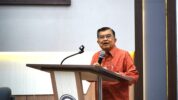

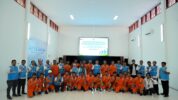


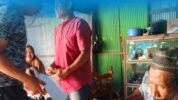

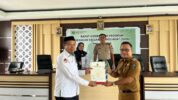
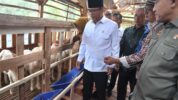
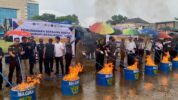
Tinggalkan Balasan